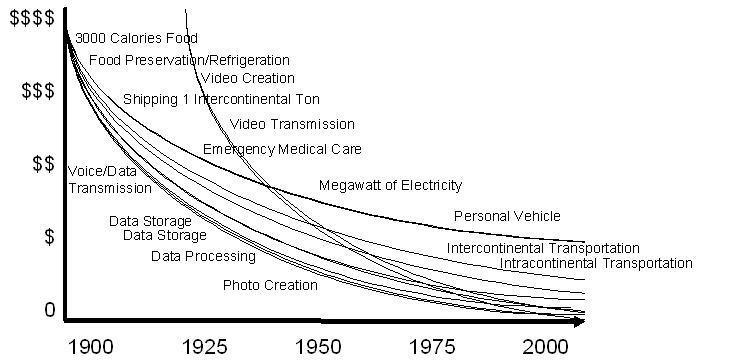Everything will cost nothing
For example, the cost of a full day of food and crossing a continent was exorbitant 2000 years ago, relatively pricey 100 years ago, and it now costs $10 for some burritos and pizza and $100 for a JetBlue flight. When compared to the cost 2000 years ago, $110 is relatively nothing to eat all day and travel 3000 miles. Similarly, computing with a free tshatshki calculator costs almost nothing compared to having to have a team of people counting with abacuses 2000 years ago.
The following chart shows how virtually every good and service of the global economy is following a similar accelerating price trend towards zero.

Digital goods such as data transmission and data processing are on the cusp of being free, with food, shipping, transportation rapidly approaching free. Energy (megawatt of electricity), basic medical care, and personal transportation (cars, etc.), are relatively expensive today but still enormously cheaper than 100 years ago and tremendously cheaper than 1000 years ago, and are trending downwards due to technical advancements.
The economic ramifications of this trend are remarkable. If everything is free, how is value created? What is the point of creating value if there is nothing to buy? How will be people distinguish themselves from each other without material indicators of success?
Manufacturers are creating artificial scarcity since products themselves are not scarce. There is no utilitarian difference between a $10,000 Balenciaga handbag, a $100 Target knockoff, a $25 Walmart knockoff, and a plastic bag. Such artificial scarcity is the last gasping holdover of the industrial economy as we enter the information economy, where the only thing of value is data and ideas rather than physical products.